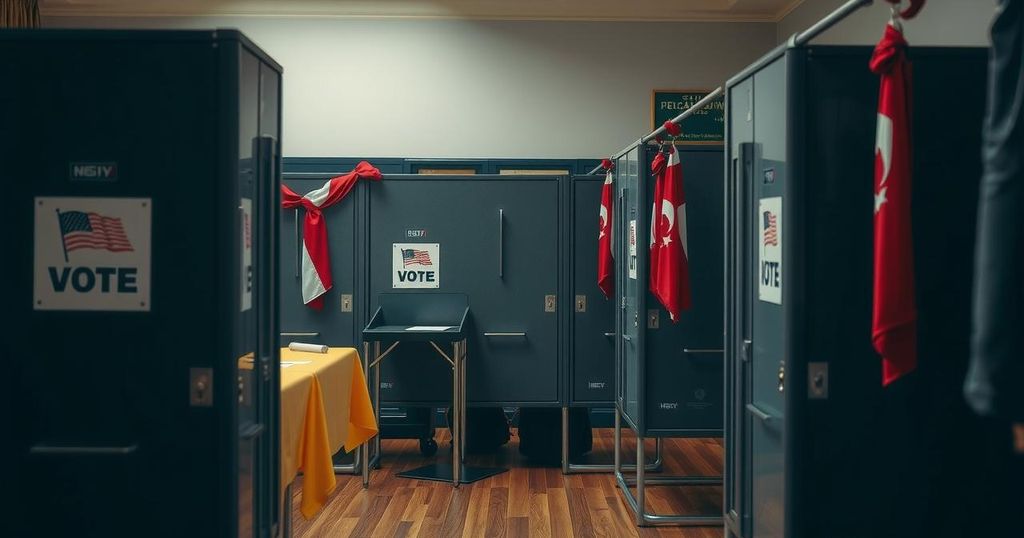Ireland Votes in Pivotal Election Amidst Housing Crisis and Political Rivalry

Ireland’s parliamentary election on November 29, 2024, will determine the new government amidst critical housing and immigration issues. The electorate of 3.8 million will choose lawmakers from various parties, including Fine Gael, Fianna Fáil, and Sinn Féin, with opinions divided among multiple candidates. The outcome may result in another coalition government amid heightened political tensions and voter dissatisfaction.
On November 29, 2024, Ireland opened its polls for a crucial parliamentary election set to determine the composition of its government amidst intense political rivalry. The electorate, composed of approximately 3.8 million citizens, is tasked with electing 174 representatives to the Dáil, the lower house of the Irish parliament, amidst pressing concerns over housing, immigration, and economic stability, issues exacerbated by recent global challenges.
The incumbent government, a coalition of Fine Gael and Fianna Fáil, has maintained a steady grip on power for over a century, though it has recently had to contend with increasing scrutiny and discontent among voters. Sinn Féin emerged as a formidable opposition force in the previous election, topping the popular vote but lacking the necessary coalition. This election features a notable contingent of independent candidates alongside traditional parties, raised concerns regarding housing availability and the impact of technological giants like Apple on public resources.
Key issues influencing voter sentiment include a severe housing crisis characterized by soaring property prices and rising evictions, driven by years of underinvestment in housing infrastructure. Additionally, Ireland is grappling with the complexities of managing its immigration policies, particularly amid an influx of displaced persons from conflict areas. These factors have heightened tensions within the Irish community, complicating the political landscape.
Polling data indicates a fragmented electorate, with support distributed among the major parties, Sinn Féin, and an array of independent candidates. While Fine Gael has faced a beleaguered campaign, Fianna Fáil remains resilient. Political analysts predict the formation of another coalition government involving Fine Gael and Fianna Fáil, possibly supplemented by smaller parties or independent representatives. The final results and government structure may take several days to finalize, as ballot counting is scheduled to commence post-election day, highlighting the dynamic and often protracted nature of Irish political transitions.
This article pertains to Ireland’s parliamentary election held on November 29, 2024, which is significant due to the changes in voter sentiment and the longstanding political rivalry between major parties, particularly in the context of social issues. Historical context includes the formation of a coalition government after the 2020 election results, marking a shift in leadership from Fianna Fáil to Fine Gael. The election occurs amidst ongoing concerns over a severe housing crisis and complex immigration challenges, impacting political stability and party dynamics within Ireland.
In summary, Ireland’s parliamentary election reflects a significant political turning point characterized by voter discontent and evolving priorities surrounding housing and immigration. The election results remain uncertain, with potential implications for ongoing government coalitions. The mainstream parties face increasing competition from Sinn Féin and independent candidates, emphasizing the need for effective governance in addressing pressing social issues as Ireland navigates its future trajectory.
Original Source: apnews.com







